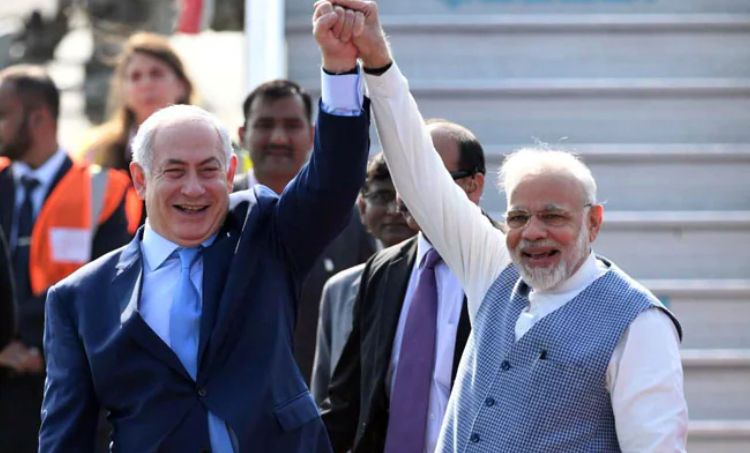One week on from the horrific terrorist attack by Hamas – the worst in Israel’s history that has claimed more than 1,300 lives – Israel Defence Forces (IDF) readied for a possible ground invasion of Gaza even as they continued with air strikes amid a worsening humanitarian catastrophe.
This weekend, Israel pummelled northern Gaza with strikes as it called on as many as one million Palestinians to leave the north and head south. In just one week of strikes, more than 2,300 Palestinians – including more than 500 children – have been killed, according to the Gaza Health Ministry.
We analysed India’s response to the crisis and also looked at the evacuation efforts under way for Indian citizens. This weekend, a second aircraft with 235 Indians on board, part of “Operation Ajay”, arrived on Saturday, following an earlier flight carrying 212 Indian citizens. According to the Ministry of External Affairs (MEA), Israel has around 18,000 Indian nationals and the airlift operation is aiming to cater to those who are willing to be evacuated. Ashkelon in southern Israel — which was targeted in the terror attack by Hamas — has emerged as a chosen destination of Indian caregivers, while students and IT professionals are mostly located in Tel Aviv, Jerusalem, and Beersheba.
India’s diplomatic response has been three-fold: unequivocally criticising the terror attack by Hamas; expressing solidarity with Israel; and restating its stand on a two-state solution and the need to uphold humanitarian principles. That formed the essence of comments last week by MEA spokesperson Arindam Bagchi, who categorically stated that India considers the attack by Hamas against Israel a “terrorist attack”. Prime Minister Narendra Modi had earlier condemned the attack as terrorism and expressed solidarity with the Israeli people. Mr. Bagchi also reiterated India’s long-standing call for the creation of a sovereign Palestinian state and said there was an “obligation” to uphold humanitarian principles.
This statement, observed an editorial in The Hindu, is a reminder of the tightrope India has walked since 1992, when New Delhi established full diplomatic ties with Israel, while continuing to support the Palestinian cause. The policy lines New Delhi is continuing to draw seem clear: to abhor terrorism, but not to condone indiscriminate reprisal bombings, even as it holds its consistent position on Palestine. (The Hindu)





